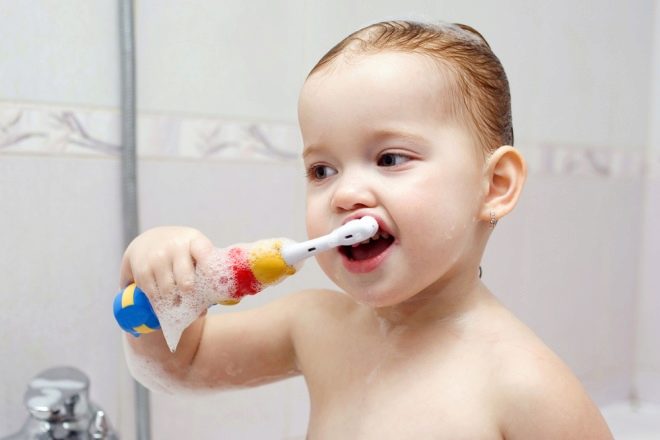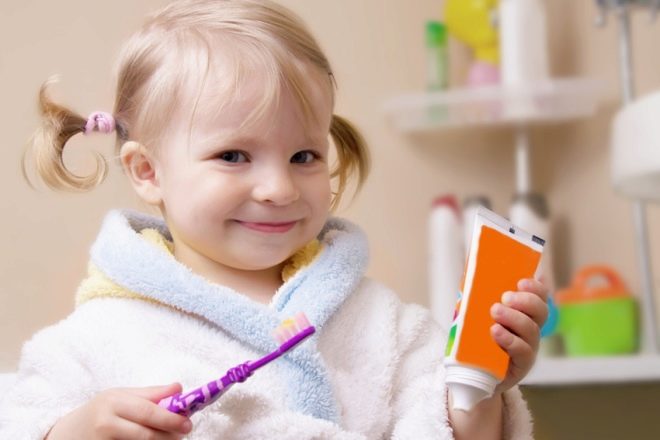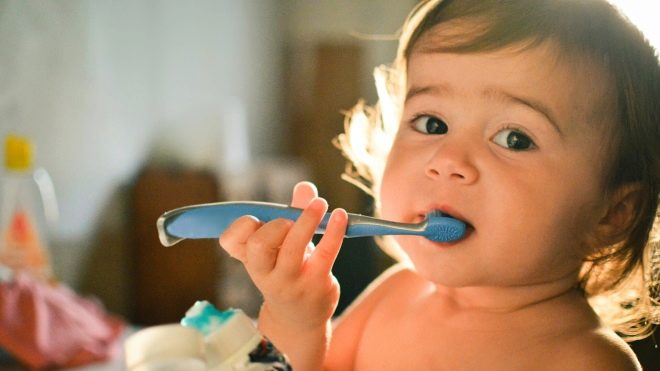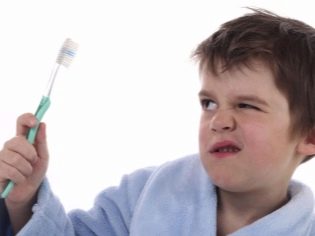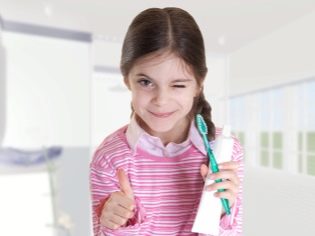Scientists urged parents not to leave children alone with toothpaste
American scientists turned to parents all over the world with a request not to leave children with one-on-one toothpaste. The fact is that babies usually squeezing too much paste onto the brush. And it can be very dangerous for the life and health of the child.
The study was conducted by experts of the Center for Disease Control and Prevention of the United States. As part of the experiment, five thousand parents who raise children aged from three to fifteen were interviewed. They were asked to carefully observe how much paste is used when washing their offspring, explaining what the norm should be.
It turned out that in 97% of cases children exceed the permissible amount.
This gave scientists reason to argue that most children form persistent chronic excess of fluoride in the body. Children are more susceptible to the diseases, which are eaten by a part of the paste squeezed onto the brush, and this is what most of the babies do.
Fluorine, of course, is necessary, it protects the teeth from caries, but its overabundance leads to the opposite effect - during the formation of the enamel of the molar teeth, an overabundance of fluorine (hyperfluorosis) causes the enamel to become uneven, non-uniform, and the teeth themselves become grayish.
Scientists said that a safe amount of fluoride for a child is not so difficult to assess. Kids up to three years old should squeeze out a quantity of pasta on a brush that is comparable to the size of a grain of rice. Children from 3 to 6 years old need a pea-sized amount of toothpaste. It is these norms that parents should control in the mornings and evenings, not leaving the child alone in the bathroom while brushing teeth..
Unfortunately, more often it is possible to meet other parental behavior - the child is sent “to brush her teeth and sleep” independently from an early age.
The researchers also recommended starting to brush the child's teeth immediately after the last one has erupted, and the first “friend” of the baby should not be a brush, but a clean damp cloth. Your baby should get his own brush with paste at the age of two, not earlier.
Earlier it was reported that substances that change the hormonal levels of children, accelerating puberty in girls and slowing it in boys were found in toothpastes. And this is another argument in favor of the reasonable and moderate use of toothpaste in childhood.
